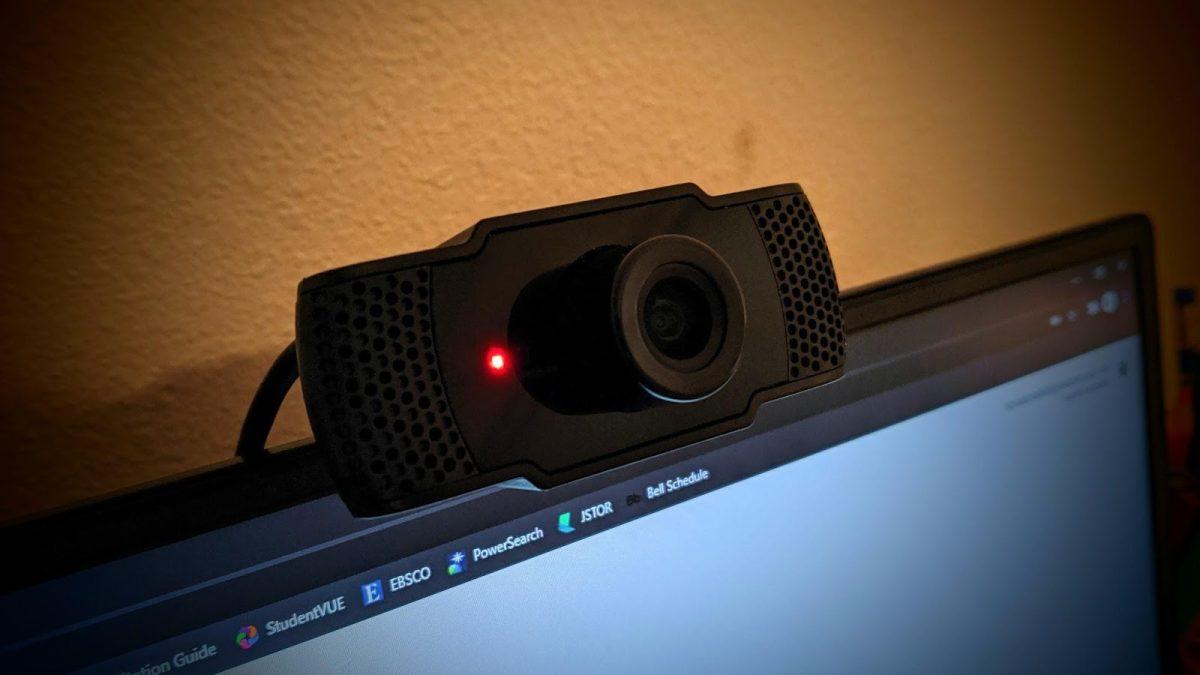The problematic 2020 AP exam period was plagued with questions surrounding the preservation of academic integrity. Communications from The College Board assured parents and educators that, despite the exams happening online and at home, there would be measures in place to prevent students from cheating. It was one of the many promises that fell short that year. Still, the AP tests demonstrated that distance learning had many holes to fill, and now, schools are leaping at new tools that claim to solve these problems. Enter: Proctorio.
Proctorio is an emerging proctoring platform that aims to restore academic integrity to uncontrolled spaces. The service, which was founded in 2014, describes itself as the only “comprehensive learning integrity platform” of its kind. According to its website, Proctorio is used by over 400 institutions worldwide, including big-name universities like Georgetown and Kent State. However, as it gains traction among educators, students are finding the service to be more oppressive than useful.
Hafsa Syed, a student at Tarrant County College, saw her school adopt Proctorio this year. Her professors in Economics, Biology, and Mathematics use its tools to proctor exams. “Proctorio definitely made the exam process more stressful,” she says. “I think exams with [it] give me more anxiety than regular testing.”
And this is understandable. The trouble with Proctorio begins at the start of any exam: students give the service full permission to use their webcam and microphone by downloading the Google Chrome extension, and when a test begins, the extension kicks in right away and asks for a near-360° panoramic scan of their environment. That’s a wall-to-wall, ceiling-to-floor capture of a student’s surroundings made accessible to their professor. During the scan, the software uses AI to look for anything that could possibly alter the testing experience— notebooks, pencils, textbooks, phones, food, drink, and even smoking devices. If you don’t do this, you’re barred from the exam, and even if you can, you may be randomly asked to do it again at any time.
After the exam time begins, Proctorio uses its granted permissions to the fullest extent possible. At your professor’s discretion, it can track eye movements, head movements, background activity and noise, other faces in frame, mouse movements, key strokes, clipboard use, external programs, and even the content of other tabs. While collecting these, it also stores full recordings of the video and audio feeds as well as everything on-screen during the exam.
It’s not academic integrity, it’s surveillance. Plain and simple.
Proctorio touts privacy as one of its strengths online, promoting its “zero-knowledge encryption” methods that prevent Proctorio employees and agents from accessing your data. The service has gone under security audits to ensure that no hackers can get in. But what good is privacy and security when your product is designed to spy? There are no safeguards for a professor’s misuse of the software; that’s entirely up to the universities. It gives a level of control and oversight that is suffocating and unrealistic in a real classroom.
“I don’t like how easy it is for professors to pick up information about you,” Hafsa tells me. When a family emergency struck earlier this year, she wasn’t able to attend a lecture that day. “I actually got an email from one of my professors [afterwards], saying he knew I didn’t have any siblings, so family emergencies ‘shouldn’t be an issue.’” She believes her professor was able to infer this information from Proctorio recordings. Right away, it forces students to cede a basic level of privacy to their professors in order to be assessed. “It makes me uneasy, if I’m honest.”
Hafsa also expressed frustration towards the software for requiring a quiet testing environment, something that is difficult in her house. “It feels like it’s almost targeted towards middle- or lower-income students, who professors often know don’t have access to a ‘school’ or study environment in their homes.”
Indeed, Proctorio’s algorithms are classist just like a human might be. When it detects any difference in behavior between a student and the rest of their classmates, it hikes their “suspicion level”—a metric designed to surface students who are likely to be cheating. “I typically can’t have silence in my exam space for more than half an hour or so, [and] we don’t have a study in my house,” she tells me, both of which would seem suspicious to AI but are normal given the circumstances.
Its programming is also harmful to neurodivergent students and those with disabilities. California State University, Chico advises its students that, “the software captures eye, head, and mouth movements, talking to self, pacing, and may flag the use of a screen reader or other devices which may be reported as ‘suspicious.’” There is no degree of understanding or forgiveness for these behaviors which are entirely normal and usual in an educational environment.
The bottom line is this: Proctorio was built from the idea that students are inherently delinquent, and that teachers are their enforcers. It actively pits educators and learners against each other, and even worse, it treats power-hungry proctors to more control than they would have in the classroom. Not only is it hostile towards students, it’s classist and ableist, going so far as to label differences suspicious. The message it sends is dark.
But as with many things that have surfaced this year, it may be a symptom of a much larger, deeper problem. Is equitable education being forgotten by academic institutions in favor of control? And perhaps more importantly, why are the people who are supposed to enlighten us becoming the same people who oppress us?
Now that’s suspicious.







































